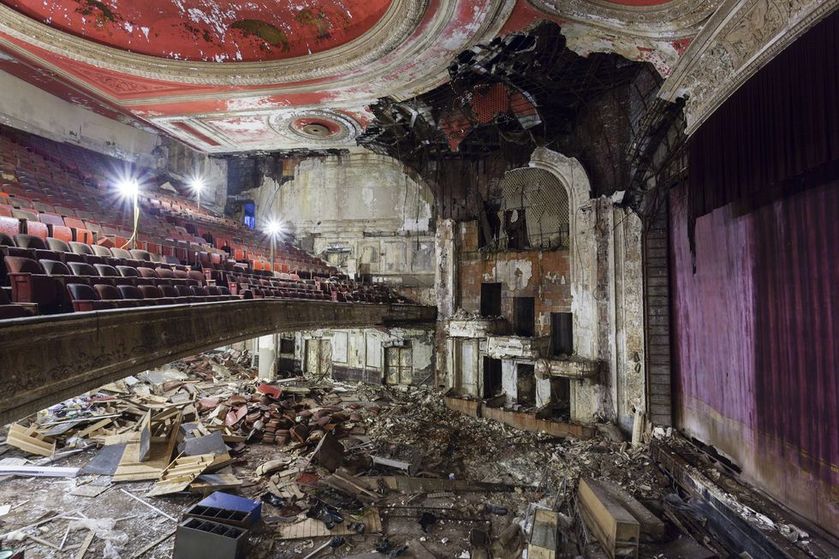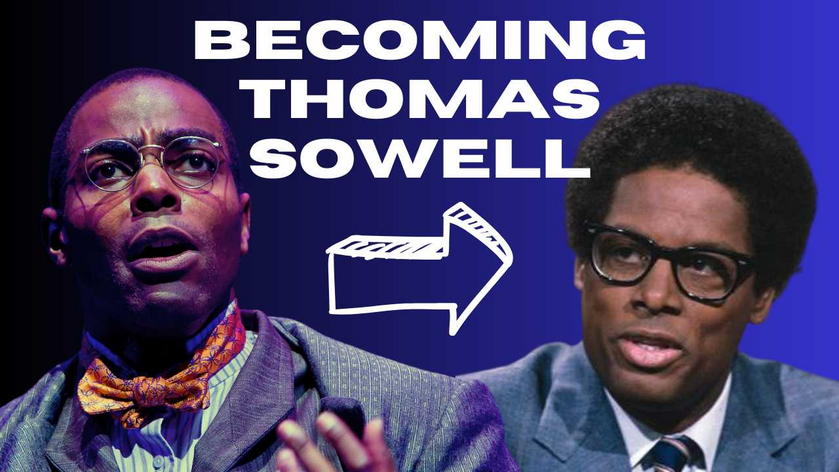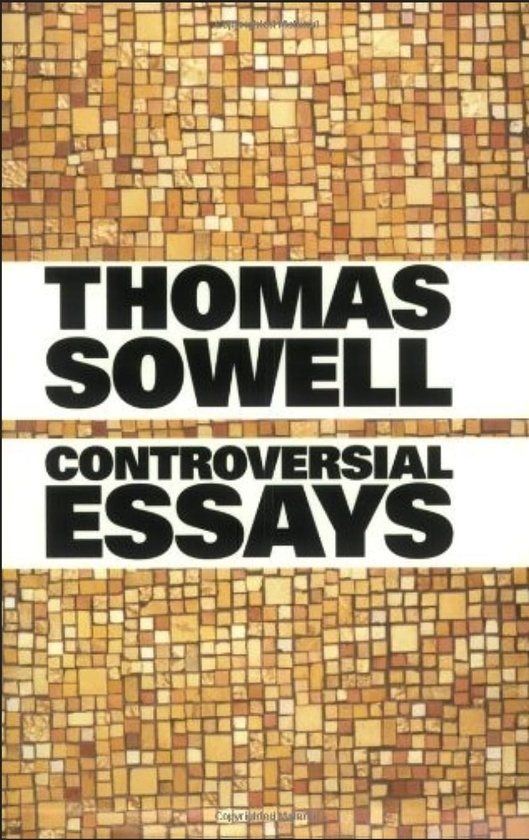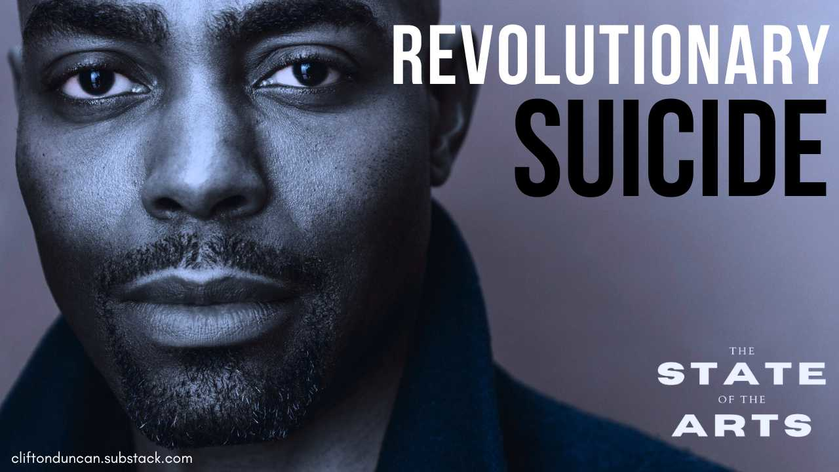
ICYMI, the following is an excerpt from an essay I released on October 30, 2023. It's the first in a 3-part series covering the crisis in America's theatre industry.
The full article can be found at here.
When King Oedipus learns, to his horror, that the prophecy he once scorned was accurate, his abrupt reversal of fortune—a moment in classical tragedy known as peripeteia—is followed by a painfully pathetic denouement. In the end, the best that the once-beloved ruler can hope for is dignity in death.
If the American theatre is not yet dead, at best it is undead: a rotting, zombified husk, shuffling on in a form that was once human. Incidentally, its fate hews so closely to classic Greek tragedy that it’s as though Fortune used Aristotle’s Poetics as a handbook in crafting the institution’s demise.
After four years of rabid anti-Trumpism and three years of pandemic-driven hysteria, the American theatre industry is now experiencing its own peripeteia. Broadway has failed to match the luster of its record-breaking 2018-2019 season. Regional theatres across the country are either truncating their seasons or are closing outright. Other forms of live entertainment, such as popular music and professional wrestling, serve as an embarrassingly stark contrast, thriving in the post-pandemic “New Normal” that theatre professionals demanded.
It didn’t take a prophet to predict the industry’s self-immolation. But much like Sophocles’ Tiresias, anyone who dared raise alarm bells about the continued implementation of failed strategy during 2020 - 2022 was condemned by an industry which never fails to see itself as on the “right side” of history. Such haughtiness is unsurprising, considering it is now beyond question that the theatre’s tragic flaw—or, as Aristotle terms it, hamartia—is hubris.
Encyclopedia Britannica elaborates (emphasis added):
Often the tragic deeds are committed unwittingly...an apparent weakness is often only an excess of virtue, such as an extreme probity…It has been suggested in such cases…that [the tragic hero] is guilty of hubris—i.e., presumption of being godlike and attempting to overstep his human limitations.
It’s also worth noting that, within the context of Greek tragedy, hubris also means “excessive pride toward or defiance of the gods, leading to nemesis”: the inescapable agent of one's downfall… or, “retributive justice.”
There is one important difference between the archetypal tragic hero and the American theatre, however:
The actions of the former elicit pity, and even compassion in onlookers.
Given its behavior over the past decade—especially in the past three years—the latter will not be so fortunate.
FALLING DOMINOES
Theatre-lovers across America were shocked when Los Angeles’ Tony Award-winning Center Theatre Group—one of the most prominent regional theatres in the country—released the following statement (emphasis is mine):
Center Theatre Group (CTG)—along with arts organizations across the country—continues to feel the aftereffects of the pandemic and has been struggling to balance ever-increasing production costs with significantly reduced ticket revenue and donations that remain behind 2019 levels.
We are still facing a crisis unlike any other in our fifty-six-year history. It is in this environment that we have to take the extraordinary step of pausing a significant portion of CTG programming beginning this summer and continuing through the 2023/24 Season.
But as the LA Times notes, a “pause” isn’t really a “pause”:
Center Theatre Group might be calling this a “pause”…but that word is a euphemism for a closure — what the entire theater ecosystem had to endure when the COVID shutdowns hit in March 2020. The hard lesson learned — during closures that in some cases lasted close to two years — is that audiences won’t quickly return in nearly the numbers needed to make budgets.
And it gets worse:
The result is a painful, and unprecedented, contraction of regional theaters nationwide. Vibrant, essential leaders of the industry including New York’s Public Theater, the Oregon Shakespeare Festival, Dallas Theater Center and San Francisco’s American Conservatory Theater, among many others, are experiencing various levels of pain — fighting to keep doors open despite dwindling ticket sales, increased production costs and hesitant, recession-wary donors.
The result: drastic cuts to programming, layoffs, candid pleas to subscribers about an industry-wide emergency and, in L.A., the indefinite shutdown of what for decades has been the city’s most prominent and important home for drama.
Worse still, theater management experts claim “25 percent to 30 percent of theater audiences have not returned since the pandemic shutdown of March 2020 that lasted until late 2021.”
The Washington Post’s veteran theatre critic Peter Marks continues:
The cutbacks and closings have been so regular of late that a document circulates among leaders of the field, listing recent “permanent closures” — such as Triad Stage in North Carolina, Southern Repertory Theatre in New Orleans, New Ohio Theatre in New York — and staff and program downsizings.
Dire as that sounds, it’s even worse considering the success of other forms of live entertainment:
As “vibrant, essential leaders” of the theatre industry flood email inboxes with requests for money, the Ultimate Fighting Championship (UFC) continues to explode in popularity and profitability.
As playhouses experience an “industry-wide emergency,” World Wrestling Entertainment (WWE) reports “skyrocketing ticket sales” and “live event attendance.”
As theatre business professionals warn “the industry will shrink by half,” the National Basketball Association (NBA) and the National Football League (NFL) are reportedly breaking attendance records… even in the midst of declining ratings and viewership.
Despite equipment shortages, live music is also doing brisk business, with artists like Taylor Swift literally igniting earth-shaking fervor among fans. Axios even makes a point to note: “live events and concerts may be booming, but live theater and opera shows are not.” (One can also add symphony orchestras to the list of failing fields.)
Even influencers are packing venues these days. Those bitching about “outdated subscriber models” and “donor fatigue” might be surprised to learn that popular YouTubers and livestreamers get donations of tens to hundreds of dollars from individual, loyal subscribers on a daily basis. Some online creators have even amassed multimillion-dollar fortunes by crowdfunding their own projects: their own projects.
Scapegoating the economy or the pandemic—as theatre industry leaders seem intent on doing—is a copout. Americans are obviously still happy to donate to artists and entertainers they enjoy, despite economic woes. They obviously still crave live entertainment, clearly understanding (unlike theatre professionals) that SARS-CoV2 is not the plague.
What Americans obviously do not want, however, is to see live theatre.
Click here to find the rest of the essay.
















